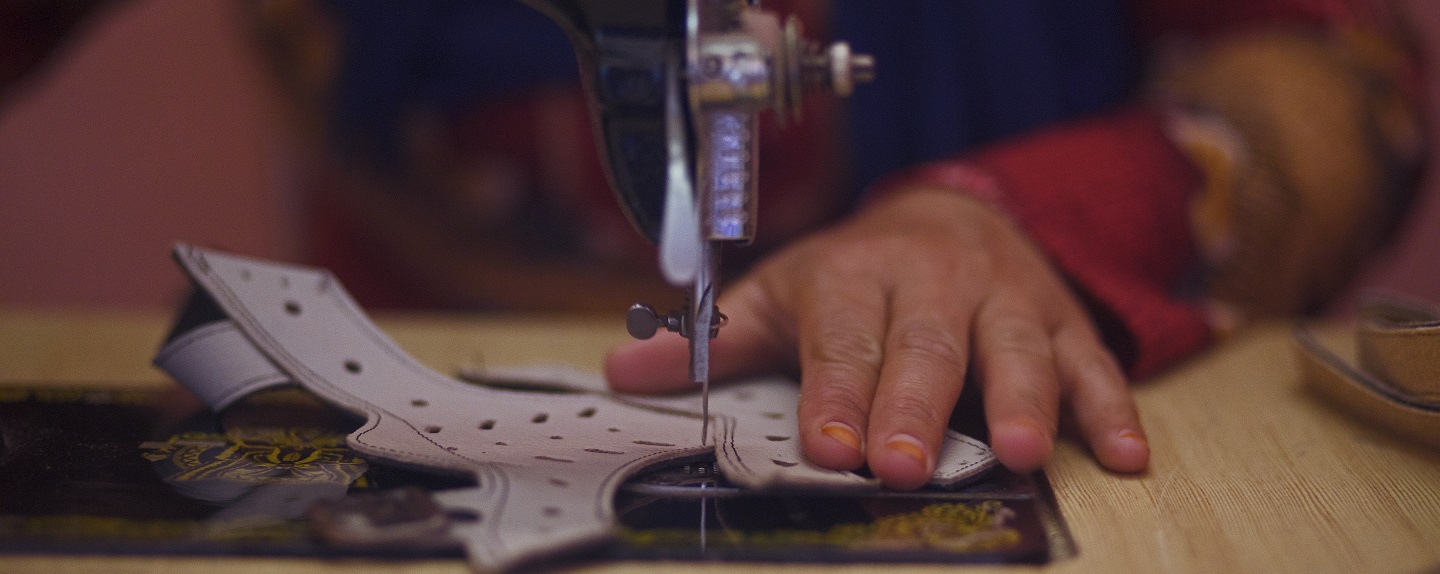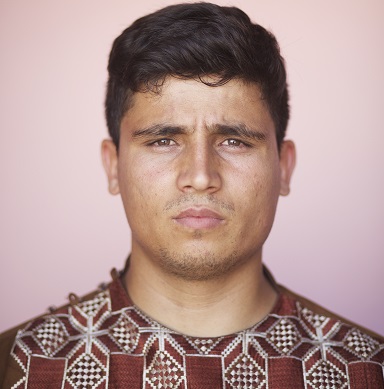
Meet Saboor, the young father who saved his family’s fortunes
Walk a mile in Saboor’s shoes and you’ll know his struggle.
No, really.
Fed up with being chronically underemployed – “It’s hard to find employers who pay regular wages,” he explains – the 28-year-old husband and father had dreams of launching his own shoe business, but for years, they remained just that. When the growling in his 4- and 2-year-old’s stomachs became too loud to bear, Saboor resolved to move his family out of Afghanistan. Anywhere, he remembers thinking, would be better than this.
Then he caught wind of an NGO that was training local people to run their own businesses and, suddenly, home didn’t seem so bad.
Mazar-i-Sharif, Balkh Province, Afghanistan
Afghanistan’s quiet crisis
Imagine if during the 2015-’16 migrant crisis some 50 million people, not 3 million, arrived on Europe’s shores, hungry and desperate for work. Now imagine if Europe was one of the poorest places on Earth, lacking even the most basic services required to keep up.
That, proportionately, is the problem facing Afghanistan, the world’s largest source of refugees for more than three decades. Today, Asia’s poorest country faces the inverse problem: the world’s largest returnee crisis, with some 2.5 million people expected back in the country this year and next, chased across the Pakistan border by new visa requirements, increased police raids and deportations, and a lack of employment opportunities, according to the UN.
Afghanistan’s returning millions need access to housing, education, clean water and healthy food. In short, they need jobs. In some cases, Hand in Hand is working directly with this growing cohort, particularly around the country’s growing poultry value chain. But the scale of the crisis means all of our programmes have taken on new importance.
Where will returnees get jobs if not from employers?
A shoe-in for success

Saboor
Materials, margins, marketing – Saboor learned a lot from his Hand in Hand trainer. “I am so thankful for the support and guidance,” he says. Today, his Noman Subhan brand shoes and sandals are all the rage in the markets and stalls of Mazar-i-Sharif, Afghanistan’s second-biggest city.
Quality, of course, will cost you – precisely AFN 625 (US $9) a pair. Multiply Saboor’s mark-up of AFN 135 (US $2) per pair by roughly 145 pairs a month and the Phil Knight of Mazar-i-Sharif is making 19,575 AFN (US $285) a month in pure profit. It’s enough to make sure his children are well-fed, sheltered and educated. Enough to make his wife proud. Enough to fuel realistic ambitions of international sales in neighbouring Uzbekistan. And enough employ six of his neighbours.
All of them, he adds, earn a regular wage.
Saboor’s results
Average monthly business income: 19,575 AFN (US $285)
Number of employees: 6
Better health and education for his children
Next case study: Meet Gloria, the former refugee growing crops – and profits
